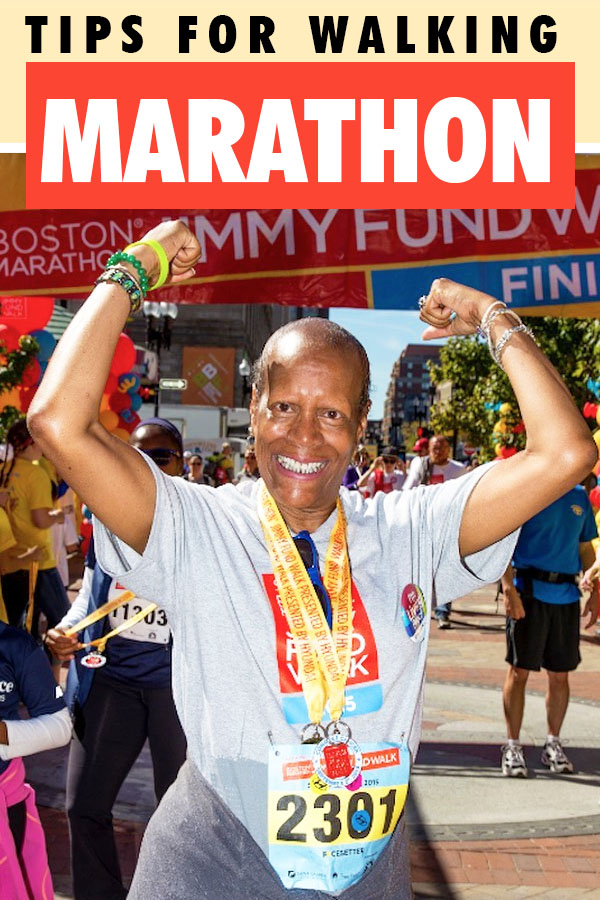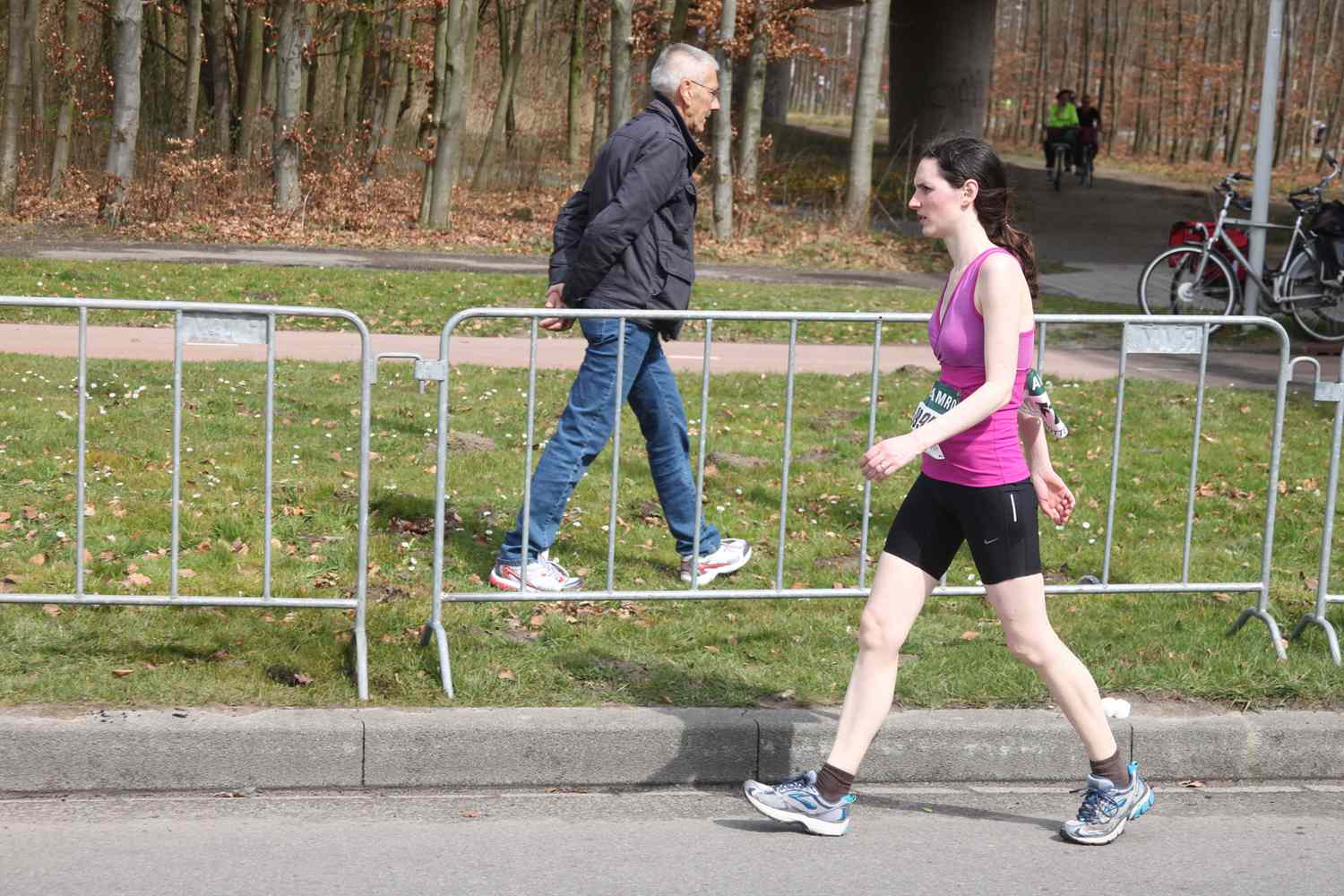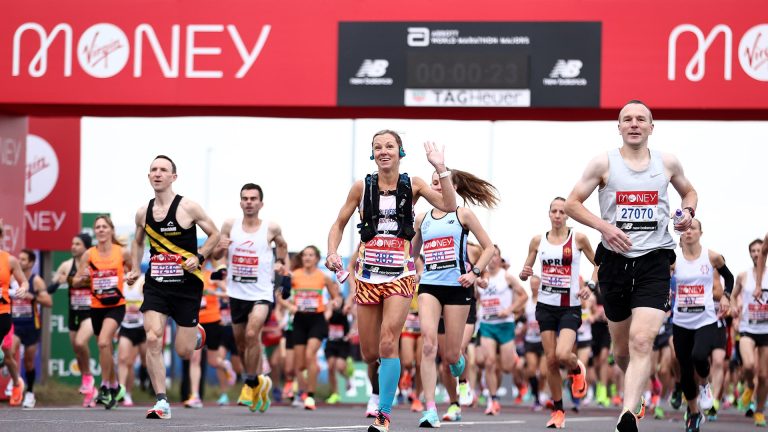Can You Walk Marathon?
Yes, you can walk a marathon. Walking a marathon is a feasible goal that many people achieve with proper training and preparation.
One step at a time, reaching the 26. 2-mile mark is a significant accomplishment that requires dedication, endurance, and commitment to your training plan. Whether you are a beginner or a seasoned walker, embarking on the journey to complete a marathon can be a rewarding and fulfilling experience.
We will explore the benefits of walking a marathon, tips for training effectively, and how to prepare both mentally and physically for the challenge ahead. Get ready to lace up your shoes and start your marathon walking journey towards a healthier, fitter you.

Credit: runeatrepeat.com
Benefits Of Walking A Marathon
Walking a marathon offers a wide range of benefits, from improved cardiovascular health to helping with weight loss and reducing the risk of chronic diseases. Whether you’re a seasoned walker or looking to take on a new challenge, participating in a marathon can have a positive impact on both your physical and mental well-being.
Improved Cardiovascular Health
Walking a marathon can significantly improve your cardiovascular health as it helps to strengthen your heart, lower blood pressure, and improve circulation. The endurance required to complete a marathon walk can enhance your heart’s efficiency and overall function, reducing the risk of heart disease and other cardiovascular issues.
Weight Loss And Improved Body Composition
Participating in a marathon walk can contribute to weight loss and improved body composition. Walking for an extended period helps burn calories and fat, aiding in weight management. Additionally, the training involved in preparing for a marathon can help build lean muscle mass and enhance overall body strength.
Lowered Risk Of Chronic Diseases
Regular participation in marathon walking can significantly lower the risk of chronic diseases such as type 2 diabetes, stroke, and certain types of cancer. Walking helps to regulate blood sugar levels, decrease inflammation, and boost the immune system, all of which contribute to a reduced risk of developing these diseases.
Training For A Marathon Walk
Training for a Marathon Walk requires dedication and proper preparation. Setting a goal is essential to stay motivated and focused on your journey.
Setting A Goal
- Decide on your marathon walk goal, whether it’s completing a specific race or distance.
- Set a realistic timeline for your training to gradually improve your endurance.
- Establish checkpoints along the way to track your progress and stay on course.
Building Up Mileage And Endurance
- Start with shorter walks and gradually increase your mileage each week.
- Include long walks in your training to simulate the marathon distance.
- Listen to your body and rest when needed to prevent injuries and overtraining.
Strength And Flexibility Training
Incorporate strength and flexibility training to support your walking performance and prevent injuries.
Nutrition And Hydration For Marathon Walkers
Proper nutrition and hydration are essential for marathon walkers to perform at their best and stay healthy throughout the race. It’s crucial to fuel your body with the right foods and stay hydrated to endure the long distances. Let’s delve into the key aspects of nutrition and hydration for marathon walkers.
Fueling Your Body For Long Distances
- Balanced Diet: Incorporate carbohydrates, proteins, and healthy fats into your meals to provide sustained energy.
- Pre-Race Meal: Consume a light meal rich in carbohydrates a few hours before the marathon walk.
- During Race: Carry energy gels, nuts, dried fruits for quick energy replenishment during the race.
Hydration Strategies During Training And On Race Day
- Consistent Hydration: Drink water regularly during training sessions to stay hydrated.
- Electrolyte Balance: Consider sports drinks to replenish electrolytes lost through sweat on race day.
- Post-Race Hydration: Rehydrate with water and electrolyte-rich beverages after completing the marathon walk.
Supplements And Recovery Nutrition
- Supplements: Consult with a healthcare provider for guidance on vitamin and mineral supplements to support physical exertion.
- Post-Race Recovery: Consume protein-rich foods like lean meats and legumes to aid muscle recovery post-marathon.
- Rest and Replenish: Ensure to get adequate rest and replenish your body with nutrient-dense foods for optimal recovery.

Credit: www.runtothefinish.com
Mental And Emotional Preparation
When it comes to walking a marathon, mental and emotional preparation are just as important as physical training. Developing a positive mindset, managing pre-race nerves and anxiety, and finding motivation and mental strategies during the race are crucial for success.
Developing A Positive Mindset
Walking a marathon requires a resilient and positive mindset. Visualizing success and affirming positive thoughts can help in building mental strength. Focusing on the journey rather than just the end goal can also keep spirits high.
Managing Pre-race Nerves And Anxiety
It’s natural to feel nervous before a marathon. Deep breathing exercises and mindfulness techniques can help calm the nerves. Staying organized and having a pre-race routine can also alleviate anxiety. Having a supportive network and positive self-talk can further aid in managing pre-race jitters.
Motivation And Mental Strategies During The Race
During the race, maintaining motivation is key. Breaking down the distance into smaller achievable goals can keep spirits high. Using positive affirmations and focusing on the present moment rather than the entire distance can also provide a mental edge. Embracing the support of the crowd and fellow participants can serve as an additional source of motivation. Maintaining a strong, consistent pace and celebrating small victories along the way can further bolster mental resilience.
Common Challenges And How To Overcome Them
Walking a marathon presents common challenges, but with proper preparation, you can overcome them. Train your body gradually, maintain a steady pace, stay hydrated, and focus on mental endurance, to achieve success in completing a marathon.
Blisters And Foot Care
Walking a marathon can be a rewarding experience, but it can also present some common challenges. One of the most common challenges is dealing with blisters and foot care. Blisters are painful and can hinder your ability to complete the marathon. However, with proper foot care, you can prevent them from forming in the first place. Here are some tips to help you overcome this challenge: 1. Wear the right shoes: Invest in a good pair of walking shoes that fit properly. Shoes that are too tight or too loose can cause friction and lead to blisters. Make sure there is enough room for your toes to wiggle and that the shoes provide adequate support. 2. Break in your shoes: Before the marathon, gradually break in your shoes by wearing them for shorter walks. This will help to prevent any discomfort or rubbing that could cause blisters on the big day. 3. Use moisture-wicking socks: Moisture-wicking socks are designed to keep your feet dry by pulling moisture away from the skin. This can help to reduce the friction that can lead to blisters. Avoid cotton socks as they tend to retain moisture. 4. Apply lubricants or blister prevention patches: Applying petroleum jelly or specialized blister prevention patches to areas prone to blisters can create a barrier between your skin and your shoes, reducing friction and preventing blisters.Muscle Soreness And Injury Prevention
Another challenge faced by marathon walkers is muscle soreness and the risk of injuries. Walking a marathon puts a significant amount of strain on your muscles, so it’s important to prepare properly and take steps to prevent injuries. Here are some tips to overcome this challenge: 1. Warm-up and stretch: Before you start walking, warm up your muscles with some light exercises and stretching. This will help increase blood circulation and flexibility, reducing the risk of muscle soreness and injury. 2. Gradually increase your mileage: Train gradually by increasing your mileage each week. This will allow your muscles to adapt and become stronger over time, reducing the risk of overuse injuries. 3. Cross-train: Incorporate other forms of exercise, such as swimming or biking, into your training routine. This helps to strengthen different muscle groups and prevents overuse injuries caused by repetitive motions. 4. Rest and recover: Listen to your body and take rest days when needed. Adequate rest and recovery allow your muscles to repair and rebuild, reducing the risk of muscle soreness and injury.Dealing With Fatigue And Hitting The Wall
Fatigue and hitting the wall are common challenges faced by marathon walkers, especially towards the later stages of the race. It’s important to have strategies in place to deal with these challenges and keep going. Here are some tips to help you overcome fatigue and avoid hitting the wall: 1. Fuel properly: Eat a balanced diet and fuel your body with a combination of carbohydrates, protein, and healthy fats before, during, and after the marathon. This will provide your muscles with the energy they need to keep going. 2. Stay hydrated: Drink plenty of water before and during the marathon to stay hydrated. Dehydration can contribute to fatigue, so make sure to drink enough fluids to replace what you lose through sweat. 3. Break the marathon into segments: Mentally divide the marathon into smaller segments or checkpoints. This can make the distance feel more manageable and help you stay motivated throughout the race. 4. Pace yourself: Start the marathon at a comfortable pace and avoid going too fast at the beginning. Walk at a consistent pace and save your energy for the later stages of the race. By following these tips and preparing yourself physically and mentally, you can overcome the common challenges of walking a marathon and have a successful and enjoyable experience. Remember to listen to your body, take care of your feet, and stay positive throughout the journey. Good luck!
Credit: www.mymottiv.com
Frequently Asked Questions For Can You Walk Marathon
Can You Walk A Marathon?
Yes, you can definitely walk a marathon! Walking a marathon is a common way for people to participate and enjoy the event.
Conclusion
Walking a marathon is attainable with proper training and determination. It is a great way to challenge yourself, improve fitness, and contribute to charitable causes. As you prepare for this feat, remember to pace yourself and listen to your body.
Stay committed and enjoy the journey towards achieving this remarkable accomplishment.






